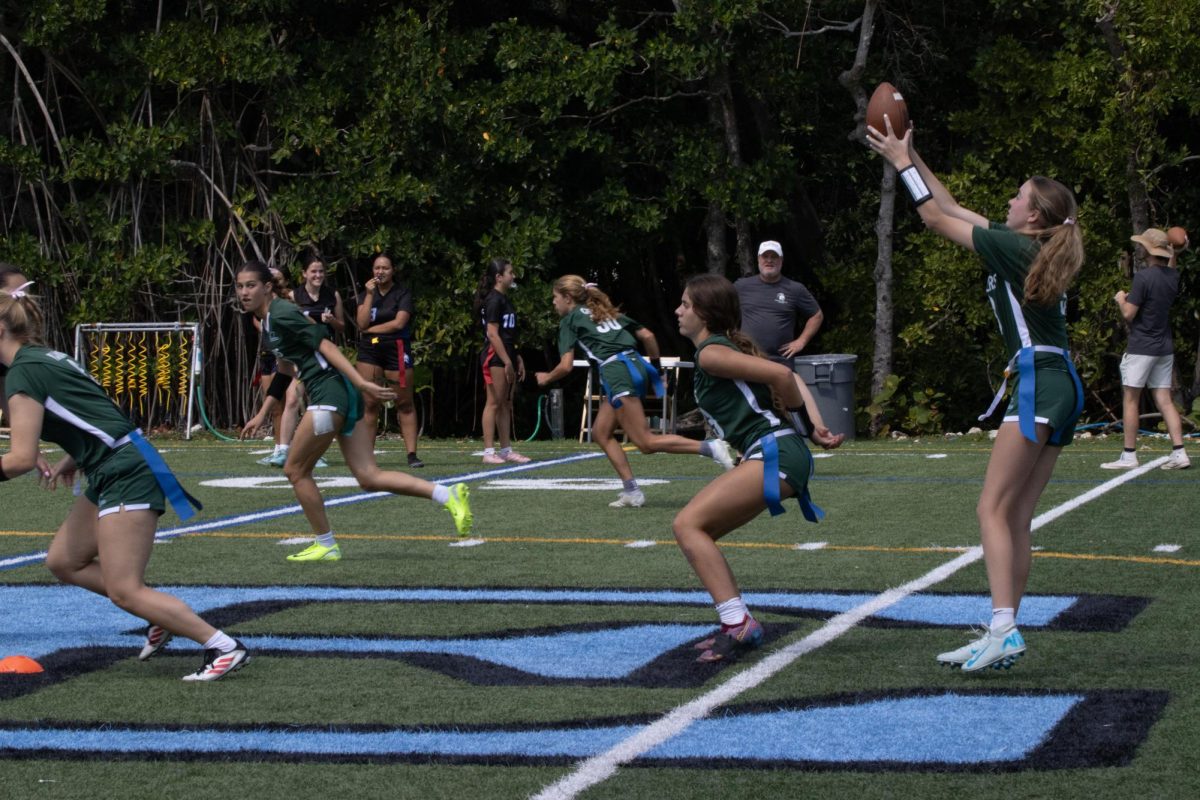Last year, Chuli Serra ’24 was setting records at Ransom Everglades. Now, as a collegiate athlete at Wake Forest University, he continues to push himself, though with a different perspective. Running has tested his discipline, forced him to adapt, and changed the way he sees himself. Once driven by the dream of Olympic gold, Serra is now focusing on personal growth and the process rather than outcomes.
Unlike many top runners, Serra didn’t grow up aiming for state championships and NCAA races. Born and raised in Key Biscayne, he was introduced to running through his father’s emphasis on fitness. “Fitness was always a big part of my father’s upbringing, and he made an effort to raise me and my sister the same way,” Serra said.
His parents encouraged him to try multiple sports—baseball, basketball, football—but none of them resonated. His father, a firm believer in discipline, made daily exercise a priority. While other kids played freely, Serra often ran up and down the Rickenbacker Bridge on Saturday mornings alongside his sister and father. “My father always told us, ‘If you are good at running, you can be good at almost every sport,’” added Serra.
For years, soccer was his focus. “I thought I was going to be a professional soccer player,” he said. But by his sophomore year, he had to reassess. “Soccer is such a competitive pool when it comes to recruiting, so I had to reevaluate my goals,” he explained. Encouraged by his friend and fellow RE alumnus Antonio Macedo ’24, he joined the track team and quickly caught the attention of coaches. “I absolutely hated it, but I ran a very fast time in my first race, and the coach said, ‘This is really impressive—you could have a future in this sport.’”
His transition to track was quick but difficult. “Running is the punishment of all sports,” he laughed. “That’s how I viewed it at first.” Over time, however, he recognized that improvement came from consistency rather than motivation. “People rely on motivation to get things done, but motivation isn’t always there. You need to rely on discipline.”
Coach Piper, one of Serra’s track and field coaches, saw his work ethic immediately. “It seemed like right away he was taking it a lot more seriously than the other boys on the team,” she said. “He really protects his bubble. His goals are so important to him that he doesn’t like to get distracted by outside noise.”
That focus helped him achieve milestones, clocking times of 4:11.19 in the mile and 8:58.82 in the 3200-meter run—some of the fastest in Florida. But those close to him say his leadership was just as impactful. “If he feels you align with his values, he’ll pull you in,” Piper said. “And once he does, he’ll take you for the ride and help you reach your goals too.”
Now a Division I athlete, Serra faces new challenges. Early morning practices, double training sessions, and the rigor of college academics demand constant adjustment. “I like sleeping. I don’t like waking up at 6:30,” he joked.
Beyond managing his schedule, collegiate running has forced him to adapt to a more competitive environment. “In high school, I was used to leading races. In college, I was just another guy in the pack,” he admitted. Adjusting meant redefining success in terms of improvement rather than rankings.
Coach Becker, his high school coach, noticed this mentality early. “The toughest part about coaching is getting runners to get over their own minds. With Chuli, that’s easy, because he’s already conditioned himself to block out the noise and focus on the task at hand,” Becker said. “He is determined to be the best he possibly can be on and off the track.”
His teammate Ethan Sullivan added, “He definitely pushed me to my limits and encouraged me to try my best in every rep or repeat that we were running. He is physically talented at running, but what I learned from him is how to conquer your own mind to excel beyond the limits you might’ve thought were possible.”
Outside of competition, Serra has developed a presence in the running community through social media. He shares insights about training, racing, and mental strategies, connecting with other runners. “It’s cool to connect with other runners and share what I’ve learned,” he said. “I used to think of running as just training and racing, but there’s a whole community around it.”
At Wake Forest, he balances athletics with academics. He’s majoring in political science with a minor in theology, while still making time for his personal interests. “I love the outdoors. I love biking,” he said. “I often use cycling as an outlet from competition.”
He values open discussions and direct communication. “I don’t like sugarcoating things. I’m a very straightforward person,” he admitted. His friendships reflect this, as he surrounds himself with people who share his goals. Despite his serious nature, Coach Piper noted his lighter side. “His silly, goofy side really comes out when he’s with his family. He jokes with his dad about how serious they both take things, and it’s nice to see him not take himself too seriously sometimes.”
At one point, Serra’s aspirations extended to the Olympics, but as he’s matured, his goals have changed. “I used to think my only path was to make the Olympics,” he said. “But now, I realize that’s not the only way to have a meaningful career in running.” He remains open to other possibilities: professional racing, coaching, or further developing his role in the running community.
Now, Serra envisions a more holistic lifestyle, where running still has its place alongside his various other hobbies and passions. “It’s such a hard sport and so time-consuming. There’s not much money in it, and I want to have a family and be able to travel,” he said. “Right now, I just want to make the most of these four years, enjoy the sport, and see where it takes me.”






